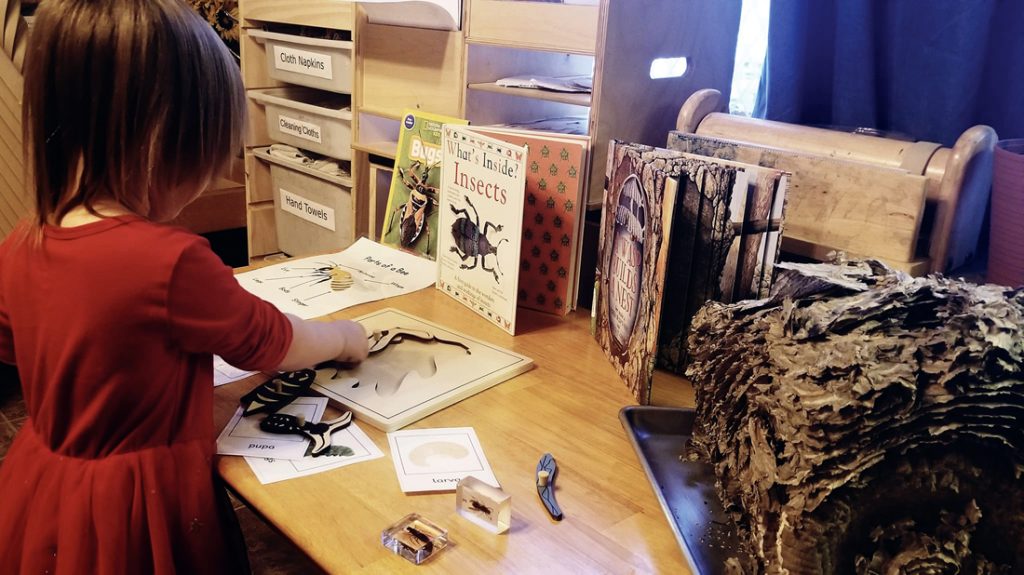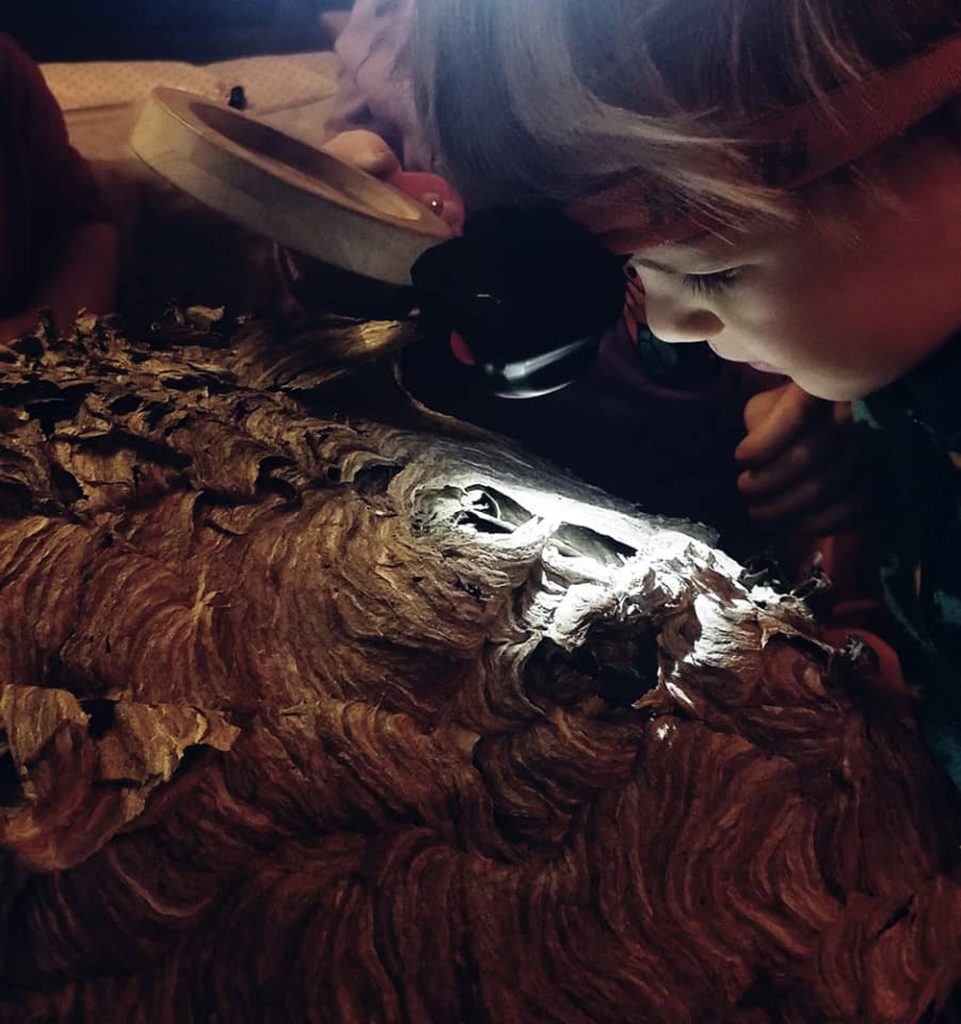
Abandoned Hornet Nest an Opportunity for Learning
By SARAH ROBERTS
COOPERSTOWN
On December 13, Cooperstown resident Ellen Pope made an unusual offer on the “Celebrate Cooperstown” Facebook page, seeking a new home for a large bald-faced hornet’s nest that had been growing in her garage for months.
“I honestly didn’t notice it until maybe July, and by then it was too big to knock down safely. Since it was on the opposite side of the door from the garage door opener button, and the movement of the door didn’t seem to agitate them that much, I decided to let them be,” Pope said. “We’d collide occasionally, but they just went on their way. I never got stung.”
Once the hornets were gone and the nest could be removed without risk of harm to human or insect, Pope decided to offer the nest to any teacher or naturalist who would like to use the nest for educational purposes.
“I was really impressed with the structure of the hive,” Pope said, “and thought it could be a great learning tool for a science teacher.”
And it would prove to be just that. Mountaintop Family Childcare jumped at the opportunity to use the nest.
“This morning, we explored and investigated all about wasps!” Mountaintop Family Childcare said in a Facebook post on December 20, which included photos of the young wildlife explorers. In images with the post, books, pictures, puzzles and the nest itself can be seen holding the children at Mountaintop Family Childcare enraptured.
“We are a New York State licensed group family childcare and serve up to 16 children in a mixed-age setting from 6 weeks to 12 years old. We use a play based, child led, and nature inspired curriculum and spend the majority of our day outside learning and exploring in nature,” said owner Melinda Marshall.
“Ellen had posted in the Celebrate Cooperstown group on Facebook that she had the nest available if anyone was interested in having it. We definitely were interested in showing it to the children, and she graciously allowed us to come pick it up,” Marshall continued.

“We spent the following week exploring the nest and learning all about wasps. The children were eager and excited to see and touch the nest and, with a magnifying glass and head lamps, could even see way down deep inside of it. We also read books about wasp homes, and studied the body parts and life cycle of wasps,” Marshall said.
“It’s bigger than some of the kids,” Pope laughed when discussing the photos of the nest.
Bald-faced hornets are actually a type of yellowjacket wasp, and are also called blackjackets, spruce wasps, bull wasps, white-faced hornets, or white-tailed hornets. They are omnivores, subsisting on spiders, insects and nectar. Their nests are built from chewed up wood, which becomes a paper-like substance they can use to build their homes—hence another one of their classifications: “paper wasps.”
Unlike honey bee colonies, bald-faced hornet colonies have a life cycle of less than half a year rather than many consecutive years. The entire colony—workers and queen—die after the newly-hatched queens and drones leave the nest, generally in early fall. The new queens then overwinter and start their own nest in the spring.
Pope’s peaceful coexistence with these wasps is somewhat unusual. They are known to be aggressive when threatened, and can sting multiple times without dying. They can also spray venom from their stingers at the eyes of perceived threats, which can cause eye discomfort and temporary blindness. However, clearly Pope was not perceived as threatening to the nest, and its inhabitants were able to live out their natural life cycle without the need for professional removal.
“We were so grateful for the opportunity Ellen gave us to study the nest,” Marshall said.
Families interested in learning more about Mountaintop Family Childcare can message Melinda on Facebook or call (607) 397-4156.

